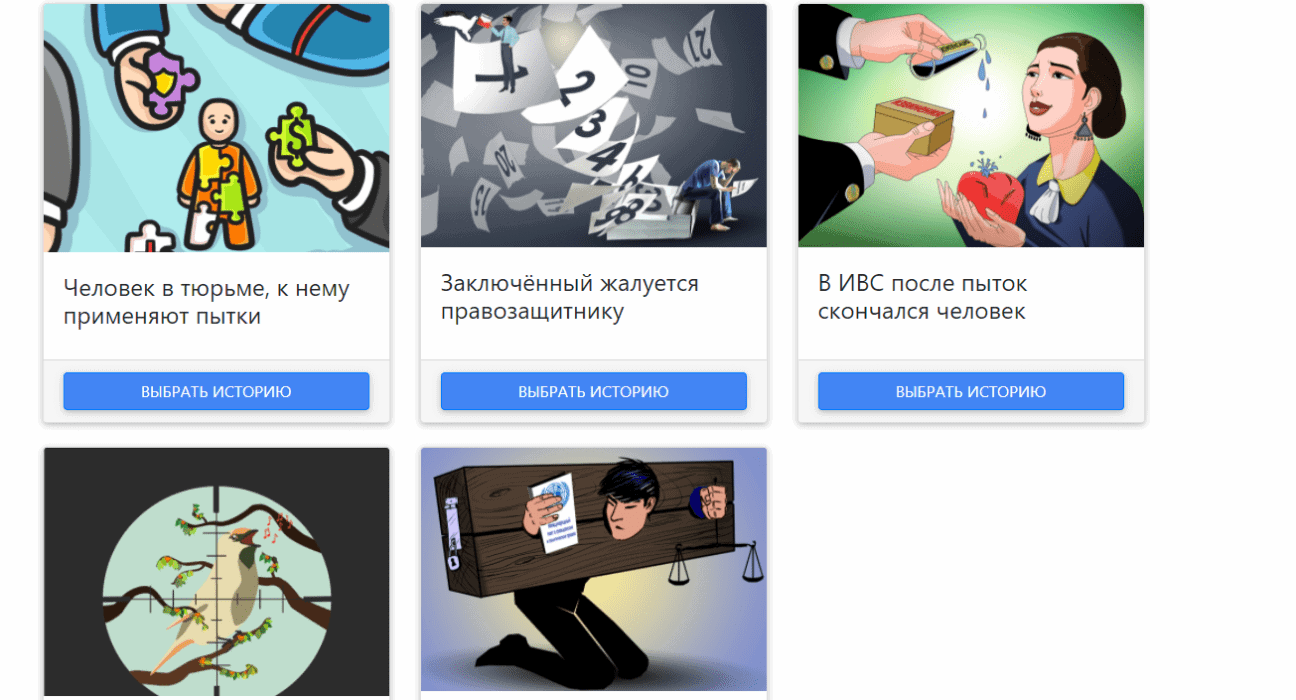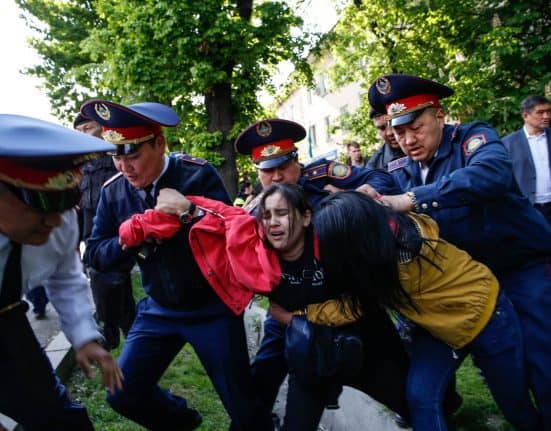Kazakh psychologists, lawyers and IT specialists in cooperation with the office of Friedrich Ebert Foundation in Kazakhstan have developed a communication simulator “П5”, which helps to improve competence and skills in counteraction against torture.
“П5” is an abbreviation of 5 Russian words that mean psychological assistance to human rights defenders in torture cases.
Anyone can use the simulator, both directly on the simulator website and in Telegram using @ psyhdv2_bot Telegram bot.
The simulator consists of five cases: “A person in prison. He/she is subjected to torture”, “A prisoner complains to a human rights defender”, “A person died in a temporary detention center after torture”, “The decision of the UN Committee against Torture is not being implemented” and “Threats for publication”.
Each case offers the user a specific situation that needs to be solved using the proposed options. At the same time, the simulator allows you to play each case from several positions: a human rights activist, a prosecutor, a victim or relatives of the victim. “Our simulator is an interactive game with a certain storyline, which assumes that the person, who plays, is looking for a way out of the presented situation, overcoming various obstacles,” said the head of the representative office of Ebert Foundation in Kazakhstan, Zauresh Shutova, at the presentation of the communication simulator.
For example, in the case “A person in prison. He/she is subjected to torture”, it is said that you were asked for help by the relatives of the prisoner who was being tortured. Next, you are asked to choose the right tactics and strategy to provide this assistance. If the correct action is chosen, then the simulator praises you. If the action is taken incorrectly, then the program offers you to choose another option, at the same time explaining what exactly is the falsity of your decision.
The simulator has already been appreciated by human rights activists and lawyers of Kazakhstan.
“I played the quest “П5”. It is exciting and interesting. I liked that I was able to choose a role and feel myself in the “shoes” of a victim, human rights defender, prosecutor, lawyer. There are very useful comments after clicking on the answer, describing possible emotional reactions and explanations: why this or that choice is correct/wrong. According to the quest, in any situation and role, you must try to solve the issue without emotions, otherwise they interfere with constructive dialogue and solving a real problem. As for me, I saw interesting algorithms of behavior and the need to choose the right words when communicating with different people, and it is important: what kind of reaction I can get in response. As a minus, the quest seems to be incomplete, it doesn’t end in some roles, but writes that it doesn’t have an answer to this request,” Aydana Tokina, the lawyer from Nur-Sultan, expressed her opinion about “П5”.
“I didn’t like the quest “A prisoner complains to a human rights defender”. I think the victim had to shoot the works and not take the application and refuse protection. The transfer will not solve the problem, since the prison officer will continue to mock the prisoners and look for other ways so that no one finds out about the torture. Consequently, the prisoner didn’t fully realize his/her constitutional rights and was simply “carefully” pressed on him/her and left without a choice,” said Aliya Nauanova, a novice lawyer from Nur-Sultan.
“The bot is perfect! I played first and fifth situations: a prosecutor, a human rights defender, a victim. In general, this is more like not a quest, but how to act. You can improve the following: when you choose the wrong option (there is a correct / wrong one), they tell you, “Think again.” And if you immediately choose the right option, you cannot look at the other ones that are not correct, or rather, you need to exit and re-enter the quest. The wrong option is useful because you read the commentary-explanation: why this option shouldn’t be chosen in your behavior,” the journalist Makhambet Abzhan gave his reference.







Leave feedback about this